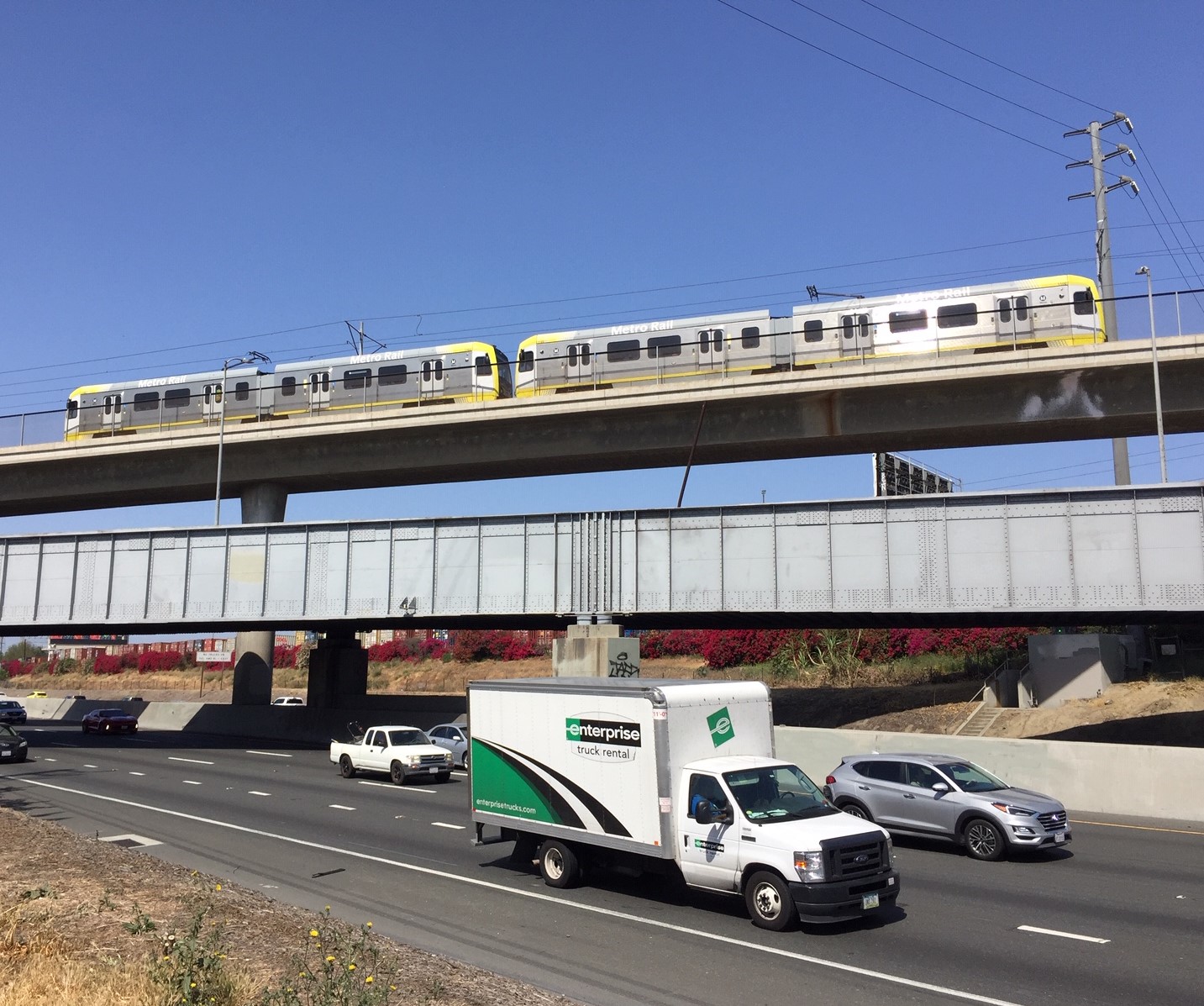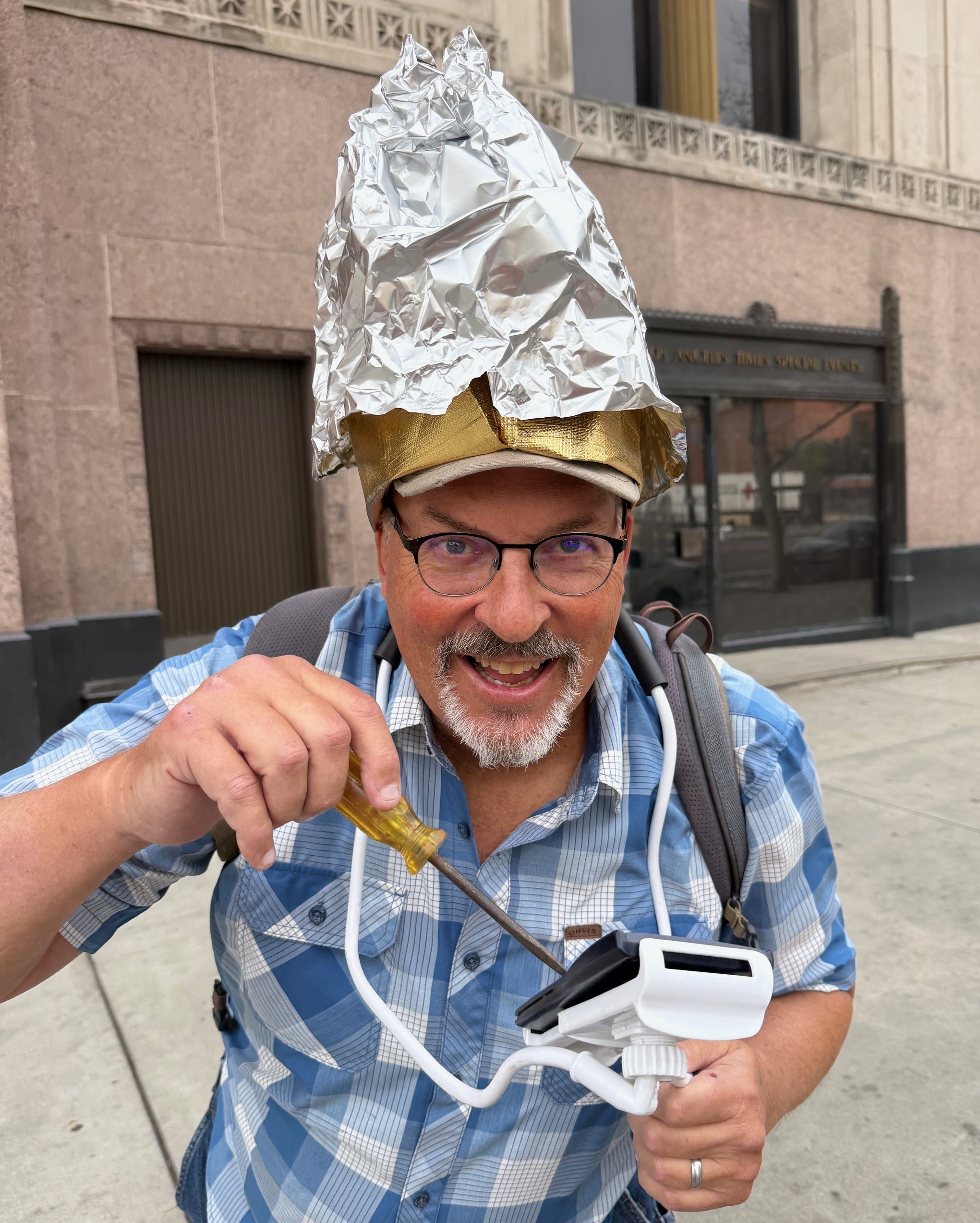For more than a decade, Metro and Caltrans have been planning to widen the 710 Freeway. Their $6 billion project plan was essentially canceled when the federal Environmental Protection Agency mandated that it comply with the Clean Air Act. Soon after the EPA decision was made public, the head of Caltrans, Toks Omishakin, stated that the project would be put on hold. After the federal and state partners pulled out, the Metro board suspended work on planning the freeway widening.
Yesterday, in a ten-minute speech to the Measure M Oversight Committee meeting, Senior Executive Officer Abdollah Ansari, who heads Metro's Highway Program, expressed his displeasure with the board suspending the 710 expansion. Ansari was especially critical of Caltrans, EPA, and the public input process.
Ansari called freeway widening a "true vision," "proper," "validated," and "justifiable" while criticizing public transit ("[Metro sales tax spending's] major emphasis [is] on transit to become the choice alternative mode of transportation in the county. We are long from the results. And we have a validated demand on the roadway system that gets worse by the day") and active transportation ("it’s not going to shift mode demands from freeway to bicycle"). He spoke about treating "freeways as rivers who no longer have the capacity to carry the water" - a veiled reference to discredited Level of Service (LOS) traffic modeling.
Regarding the lower 710 project, Ansari stated: "We've been twelve years in the environmental process," and
...while we were in negotiations with EPA - frankly getting close to an impasse - on signing off on [the] 710 [project], Caltrans' Director in headquarters [Toks Omishakin] all of a sudden without the knowledge of the district [Caltrans L.A./Ventura District 7] or us - announced that Caltrans is not going to sign off on the environmental document.
Characterizing EPA negotiations as "getting close to an impasse" grossly misrepresents the EPA's 710 project decision. For years, Metro insisted this project did not need an air quality analysis; for years, EPA insisted it did. In November 2020, the EPA met with Caltrans, Metro, and the Federal Highway Administration and told them that the analysis was necessary. There was no way for negotiations to get any closer to an impasse because the impasse already happened last year - over four months before Caltrans "all of a sudden" paused the project.
Did Omishakin pause the project (in May 2021) "without the knowledge of the district"? Not according to Omishakin, who, as part of his May statement, said that he had met with Caltrans District 7 Director Tony Tavares regarding the 710 and the EPA letter.
Ansari then touched on Metro's strategy moving forward: proceeding with smaller portions of the 710 project.
We will be pushing for early investment in the traffic mitigation work now: smaller scale projects. We will have a follow-up conversation with EPA making sure they’re not holding a grudge. We will treat individual projects' environmental documents as they are, not [for EPA] to challenge that this is going to be piecemealing, because it is not.
Instead of Ansari acknowledging that the EPA is doing its job - enforcing clean air law - he asserts that the agency's resistance to widening the 710 is "holding a grudge." He then fires a shot across the EPA's bow, saying that it will need to go along with Metro splitting a bad project up into several smaller bad projects. This process, known as piecemealing, is illegal under environmental law.
On top of criticizing Caltrans and EPA, Ansari mocked public input, which recently has been strongly against Metro greatly increasing its highway widening budget. Ansari opened his remarks sarcastically, denigrating
some messages that we’ve been receiving lately from visionaries that don’t believe improvements and investments in the highway system - especially in L.A. County - is necessary.
And wound down his remarks saying:
a lot of visionaries with one-minute cards coming to our board meetings, and in one minute they modify the need for whatever is validated.
The one-minute cards are, of course, required for people who want to provide what minimal public input is allowed at Metro meetings. This characterization ignores the decades of resistance by communities along the 710 corridor - primarily the Coalition for Environmental Health and Justice (CEHAJ), which advocates for a 710 project that would center the health of adjacent communities.
Ansari isn't the only Metro voice pushing false narratives that blame Caltrans and/or the EPA for a failing 710 project.
In The Source's recap of last week's Metro board meeting, Steve Hymon wrote:
State and federal officials this year raised questions about the project’s impacts to air quality and the many communities along the 710.
But it wasn't "this year." The EPA says it was November 2020. And the EPA letter does not "raise questions." The letter tells Metro that they have to comply with clean air law.
At the Gateway Cities Council of Governments board meeting yesterday, City of Commerce Mayor Pro Tem Oralia Rebollo questioned Metro Boardmember Fernando Dutra on why he hadn't initially supported Supervisor Hilda Solis's 710 Freeway motion, which had the support of the cities of Bell, Commerce, Cudahy, South Gate, and Maywood. Dutra responded:
...There wasn't clarity from Caltrans. Caltrans put out this direction that they were taking a different direction relative to freeway design, especially related to emissions and air. But they weren't clear on it. As a matter of fact, they admitted there was some ambiguity. So I felt that, in order to get clarity on where the project was, we needed to bring Caltrans, Metro, and the [Gateway Cities] COG together. I didn't feel that the motion the way that it was originally written achieved that or had that direction.
It's not clear what direction/directive Dutra is referring to (it may be Governor Gavin Newsom’s 2019 executive order 19-19 which aligns CA transportation spending with greenhouse gas emission reduction targets.) But Caltrans Director Toks Omishakin could hardly have been clearer in his statement on the 710:
We’re in a place right now where we want to put an absolute pause on this project in the format that it’s currently in. It is not aligning with the direction … that we are taking the state from a transportation standpoint. It’s plain and simple.
…what you see in front of you today, in the current format, we will not be moving forward – at least from Caltrans.
Is it time for Metro to accept what the EPA, Caltrans, corridor communities, and the L.A. Times, are already pretty clear about? As currently formulated by the Metro Highway Program, the 710 Freeway widening project is not viable. Isn't it past time for Metro to stop blaming others for Metro's own failures - and to truly, in the words of Phil Washington, "reimagine" the future of the 710 corridor?







